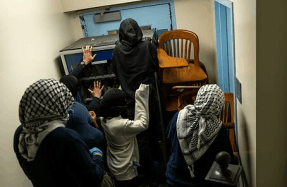What the Global South could teach rich countries about health care — if they'd listen

When Dr. Matthew Harris returned to the United Kingdom in 2003 after a four-year stint in Brazil, he remembers being fired up with ideas—only to encounter what he describes as a "wall of prejudice."
He had moved to Brazil in 1999 after finishing medical school in London and working in the U.K.'s National Health Service (NHS) for a year. There he had to start over and re-train to be certified as a doctor in Brazil, passing proficiency exams in Portuguese through the University of Sao Paolo.
On his return to the U.K., he was convinced his home country could learn so much from the Brazilian health system, if only they were prepared to listen.
They were not. So, he came to understand how researchers and clinicians from the Global South must feel when they go unheard because of the many prejudices that still grip global health.
Harris's new book, , delves into what these biases mean for the future of medicine. Harris, now a public health researcher at Imperial College London, spoke to NPR about his book via video call. The interview has been edited for
You’re reading a preview, subscribe to read more.
Start your free 30 days





